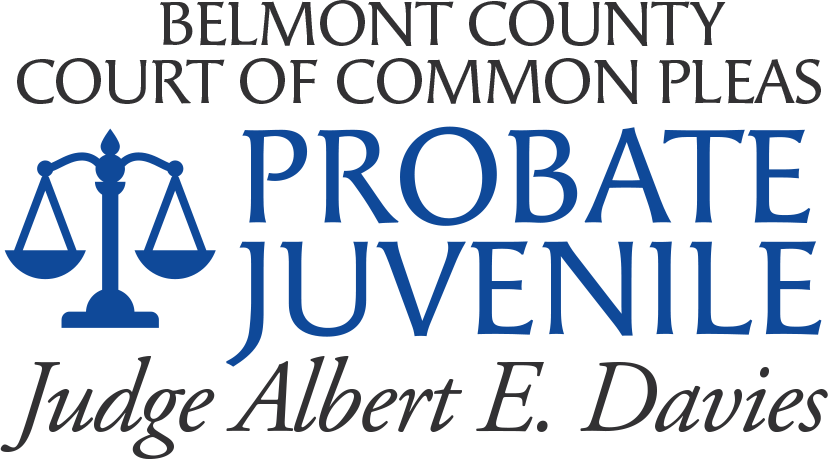I Want to Become a Guardian
A guardian is a person, association or corporation appointed by the Court to have the care and management of the person, the estate, or both, of an incompetent adult or a minor.
Minor – A minor is generally any person under the age of eighteen years of age. These guardianships are typically only pertaining to the estate.
Incompetent – An incompetent is any person who is mentally impaired as a result of a mental or physical illness or disability, or mental retardation, or as a result of chronic substance abuse, that the person is incapable of taking proper care of the person’s self or property or fails to provide for that person’s family or other persons for whom the person is charged by law to provide, or any person confined to a correctional institution within the state.

Types of Guardianships
Person and/or estate: The guardian of the person protects the personal needs of the ward. The guardian of the estate controls and protects the assets of the ward.
• Limited: The guardian’s authority is limited to specific purposes
• Interim: When a guardian can no longer serve, an interim guardian may be appointed for a short time without notice to the ward or family, until a hearing can be set to appoint a successor guardian
• Emergency: A guardian may be Court appointed in an emergency without notice to the ward or family, to serve for a short period of time to protect against injury to the person or estate of the ward
Who May Serve as a Guardian
An adult person who is a resident of Ohio may apply to be the guardian of the person and estate of an incompetent person. The Probate Court must determine that the applicant is a suitable person to serve as Guardian.
Starting the Procedure for the Appointment of a Guardian
The guardian process is started by filing an application for the appointment of a guardian including other required forms, i.e. Next of Kin Form and a Statement of Expert Evaluation for an adult incompetent. The filing fee is found in local rules. In cases of Mental Retardation, the judge may determine if a fee is to be charged.
The Belmont County Probate Court pursuant to Rule 66.05 of the Rules of Superintendence requires a criminal background check to be completed prior to the filing of guardianships. The background check may be obtained by scheduling an appointment at the Belmont County Sheriff’s Department. Please note a fee is required. For Ohio applicants, a BCI check is required. Applicants are to have background checks returned to the Probate Court, 101 W. Main Street, St. Clairsville, Ohio 43950.
Belmont County Sheriff’s Department
68137 Hammond Road
St. Clairsville, Ohio 43950
(740) 695-5124 x 113
Pursuant to Rules 66.06 and 66.07 mandatory adult guardianship education is to be completed including a one-time fundamental course. Information about this free training is available on the Supreme Court of Ohio website.
The Probate Court will accept checks, credit cards, or cash. We do accept filings by mail. Please also provide a phone number, return address, and e-mail (if applicable). After the paperwork is filed with the Court, a hearing date is scheduled. Notice of hearing is served upon all persons who are required to be served with notice.
Guardian’s Inventory
The guardian of the estate must file an inventory of the ward’s assets and income with the Court ninety (90) days from the date of the guardian’s appointment.
Guardian’s Account
Each year the guardian must file an account with the Court — the first account to be filed one year from the date of the guardian’s appointment. The guardian’s future accounts are due two (2) years from the due date of the prior account for the period which begins at the ending date of the previous account.
Guardian’s Report
The guardian must file a Guardian’s Report and a Statement of Expert Evaluation in all incompetent adult guardianships. A Guardian’s Report is not required in minor guardianships. The first Guardian’s Report and Statement of Expert Evaluation are due to be filed one (1) year from the date of the guardian’s appointment. Additional Guardian’s Report and Statement of Expert Evaluation forms must be filed two (2) years after the date of the filing of the last Guardian’s Report.
Termination of Guardianship
A guardianship of the person or of the estate of a minor ends on the minor’s eighteenth (18th) birthday. The guardian of the estate of a minor is required to file a final account within thirty (30) days showing the remaining assets of the guardianship that have been turned over to the former minor.
A guardianship of the person or estate of an incompetent adult can be terminated for three reasons:
• the ward dies
• adult ward is determined by the Court to be competent
• guardianship of the estate may be terminated if all of the ward’s assets have been properly spent
Failure to comply with the requirements of the law may result in the Court issuing a contempt citation to the Guardian. The Guardian of the estate is required to file a final account to terminate the Guardianship of the Estate.
Adult Guardianship Education required, click here for information
